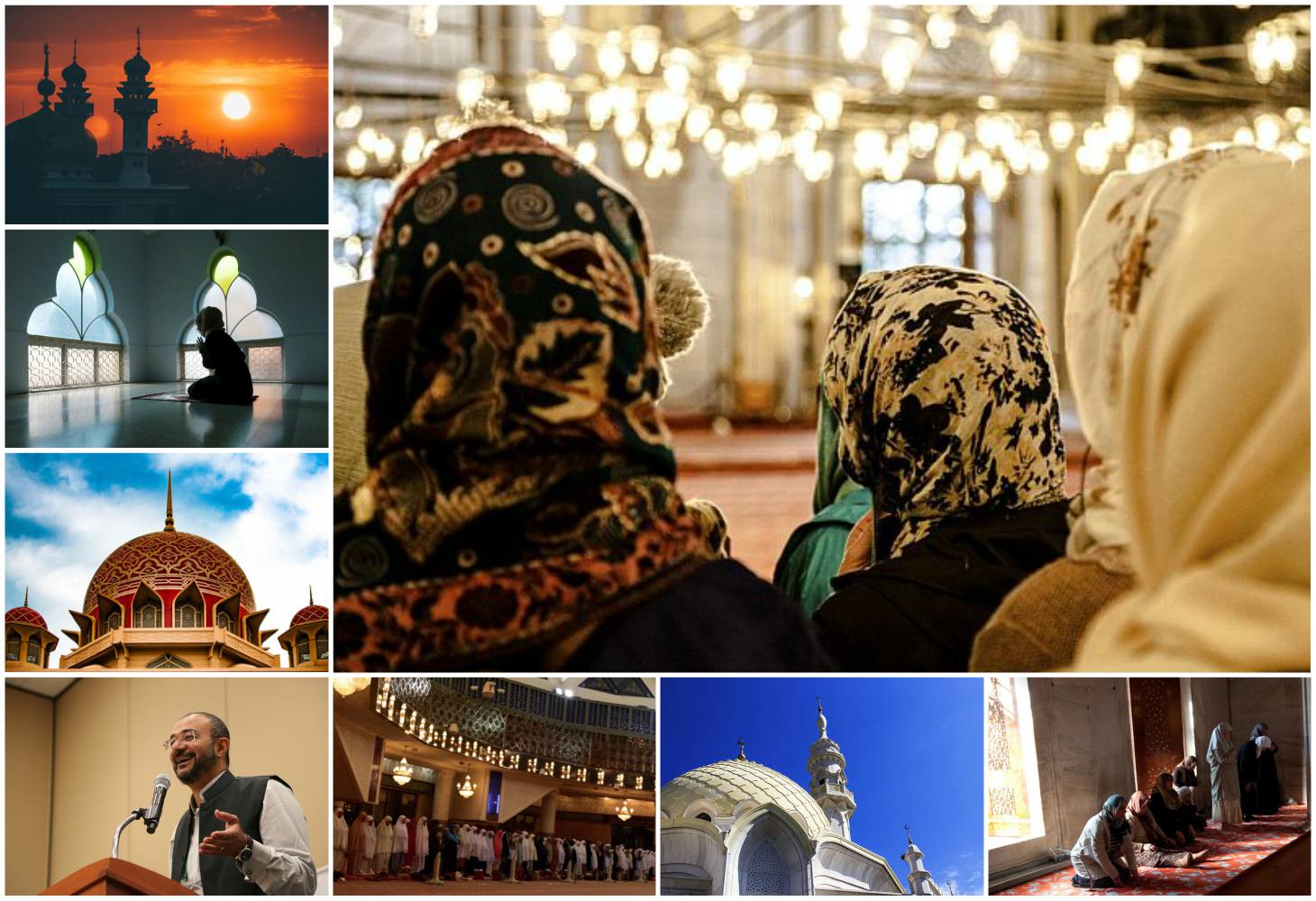Mutual agreement and considering priorities is essential
So, the original ruling regarding preventing women from going out to the Mosque by a husband or a guardian, for instance, is that it is forbidden, based on the Prophet’s (peace and blessings be upon him) ordinance.
Yet, we infer from the Hadiths of `Umar’s wife and of Um Humayd that both spouses should consult with each other and reach an agreement about this issue according to the different familial and social conditions. For, it is improper that woman’s going out to the Mosque be at the expense of her duties towards her family, which are legally of a higher priority.
However, her husband should cooperate with her in a manner that does not have negative bearings on his legally more important duties. So, the matter requires balance and moderation. Still, it is impermissible at all to prevent a woman from going out to the Mosque, since this prevention is explicitly forbidden by the Prophet (peace and blessings be upon him).
Summary
A Muslim woman should frequent the Mosque again, and it is impermissible to prevent her from doing so, either individually or collectively. Rather, there should be a suitable place for women in the Mosque, and they should be encouraged to go out to it so that they, like men, can bring about desired interests and objectives behind frequenting Allah’s places of worship, especially in the present age.
[1] Al-Bukhari, chapter on Prayer, 6/2; Ibn Hibban, 327/1, Al-Muwatta’, 197/1, Al-Bayhaquy, 199/3, with the addition, “And they should go out without wearing adornment or perfume”; Ibn Khuzaymah, 90/3, in a similar wording, Ibn Abu Shaybah, 156/2; with the addition, “And they should not go out expect when not wearing adornment or perfumes”; Al-Mu`jam Al-Awsat, 178/1; Ibn Abu Shaybah, 156/2; with the addition, “But they should not go into it unless when not wearing adornment or perfumes”, Ma`rifat As-Sunan Wal-Athar, 237/4; Ad-Darimy, through a sound chain of narration; Abu Dawud; and Ahmad on the authority of Abu Hurayrah (405/15).
[3] Al-Tabarany’s Al-Mu`jam Al-Kabir, 362/12 and 399/12.
[4] At-Tirmidhy, 709/1, Al-Bukhari, 305/1: Allow women to frequent the Masjids at night.
[5] Al-Bukhari, chapter on Prayer, 173/1; Muslim, chapter on Prayer, 328/1, and others.
[6] Ibn Hibban’s Sahih, 815/2, and Ibn Hajar’s Fat-h Al-Bary, 495/2, and he said: It is referenced by Ahmad, At-Tabarany, and the chain of narration referenced by Ahmad is good.
[7] Al-Mudawwanah Al-Kubra, 106/1.
[11] Tahrir Al-Mar’ah Fi `Asr Ar-Risalah [Liberating Woman in the Age of the (Divine) Mission], 36/1.
[12] Al-Bayhaquy, 190/3; At-Tabarany in Al-Mu`jam Al-Kabir, 148/25; and Al-Ahad Wal-Mathany, 150/6.
[13] Its chain of narration is weak, and Al-Hafizh Al-`Iraqi said upon referencing the Hadiths quoted in Ihya’ `Ulum Ad-Din, “reported by Al-Bazzar and Ad-Daraqutny under miscellaneous Hadith, from `Aly through a weak chain of narration.”
* Translated from the Arabic original by AboutIslam.net.
Pages: 1 2 3 4
